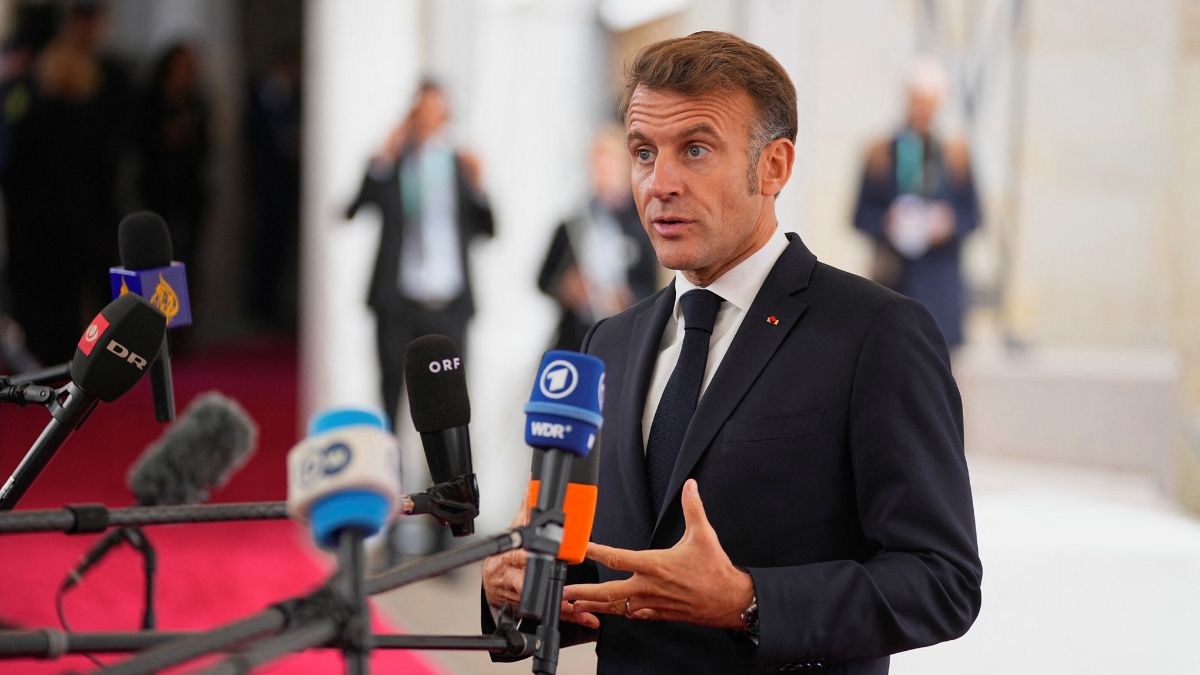Emmanuel Macron’s presidency is facing renewed pressure as France’s deepening political crisis claims a third prime minister in just one year.
Once calling himself maître des horloges — the master of the clocks — Macron’s grip on timing now appears to be slipping, with growing calls for him to step down ahead of the 2027 presidential election, according to a BBC report.
Lecornu resignation
On Monday, Prime Minister Sébastien Lecornu resigned just 26 days after taking office, becoming the latest casualty in Macron’s struggle to stabilise the government. Within hours, Lecornu reversed course, agreeing to remain in office until Wednesday to hold last-ditch talks aimed at forming a new coalition.
The abrupt turnaround marked another dramatic twist in a crisis that began with Macron’s surprise decision to call a snap parliamentary election in June 2024. That gamble backfired, leaving his centrist alliance without a majority and forcing him to seek support from ideologically divided parties — a task that has proven politically impossible.
According to the BBC report, polls now show nearly three-quarters of French voters believe Macron should resign, though the president has ruled out stepping down early.
All eyes are now on whether a viable government can be formed in the coming days or if Macron will be forced to dissolve parliament once again.
France’s ballooning public debt
Lecornu’s brief tenure followed the equally short-lived terms of Michel Barnier and François Bayrou, both of whom were ousted in confidence votes after failing to push through austerity measures aimed at reducing France’s ballooning public debt.
Impact Shorts
More ShortsFrance’s debt currently stands at €3.4 trillion — almost 114% of GDP — making it one of the highest in the eurozone, behind only Greece and Italy. The budget deficit is forecast to reach 5.4% of GDP this year.
Lecornu did not even get the chance to present a budget before facing widespread criticism from across the political spectrum. His proposed cabinet, revealed on Sunday, immediately sparked backlash. By Monday morning, he declared his position “untenable,” blaming the refusal of rival parties to compromise. “They all behave as if they had a majority,” he said.
Bruno Retailleau, leader of the conservative Republicans — one of the parties Macron hoped to partner with — pulled out of the government just 14 hours after it was announced.
With no party able or willing to take responsibility for governing, political gridlock has set in. The main parties are now preparing for two possibilities: early legislative elections if Macron dissolves the National Assembly again, or jockeying for position ahead of the 2027 presidential race.
What happens now?
Lecornu has until Wednesday evening to present a “platform of action and stability” to President Macron after intensive talks with party leaders.
According to the BBC report, there are four options but none of the options on the table offer an easy way out of France’s political deadlock.
If Lecornu manages to convince centrist parties to support a coalition, Macron can appoint a new prime minister — though Lecornu has ruled himself out. One possible route: offering the role to the Socialists in exchange for suspending Macron’s controversial pension reform. But reversing the pension age hike from 64 to 62 would cost billions — at a time when France urgently needs to pass a 2026 budget and rein in its soaring debt and deficit.
If no agreement is reached, the Élysée has suggested Macron will “take responsibility” — widely interpreted as dissolving parliament. That would trigger new elections within 40 days, likely in November. A snap vote would be risky for Macron’s centrist bloc and the Socialists, but could significantly boost Marine Le Pen’s far-right National Rally.
Though Macron’s term ends in 18 months, public pressure for him to quit is mounting. He has firmly rejected the idea of early presidential elections. Former ally Benjamin Haddad argues resignation would be pointless: “The political divide is here to stay.”
Even without a formal government, parliament could push through a limited budget deal. But compromise is rare in French politics — and hopes for a quick agreement remain slim.
Who’s who in France’s political crisis
The key players in France’s deepening crisis span the political spectrum — and many have turned on President Emmanuel Macron as his grip weakens.
On the far right, Marine Le Pen and her protégé Jordan Bardella of the National Rally have refused to engage in talks, instead pushing for snap elections. On the radical left, Jean-Luc Mélenchon of France Unbowed (LFI) continues to call for Macron’s impeachment — backed by the Greens — though such a move remains unlikely.
Olivier Faure, leader of the centre-left Socialists, has kept communication open with Macron’s team but insists on a left-wing government if his party is to play any role.
Meanwhile, Gabriel Attal, head of Macron’s Renaissance party, has publicly questioned the president’s judgment, highlighting growing unease within Macron’s own camp.
On the centre-right, Bruno Retailleau of the Republicans was initially aligned with the centrists but has since distanced himself.
Has Macron hit a dead end?
Following the resignation of his third prime minister in a year, Macron was seen taking a solitary walk along the Seine — a photo-op that seemed to reflect his increasingly isolated position.
Even Édouard Philippe, Macron’s former prime minister and close ally, has urged him to appoint a technocratic government and consider early presidential elections — an idea Macron has so far resisted.
Despite the growing pressure, Macron is unlikely to bow out easily. But as his political support fragments and France edges closer to paralysis, the self-styled “master of the clocks” may be running out of time.
With inputs from agencies
)